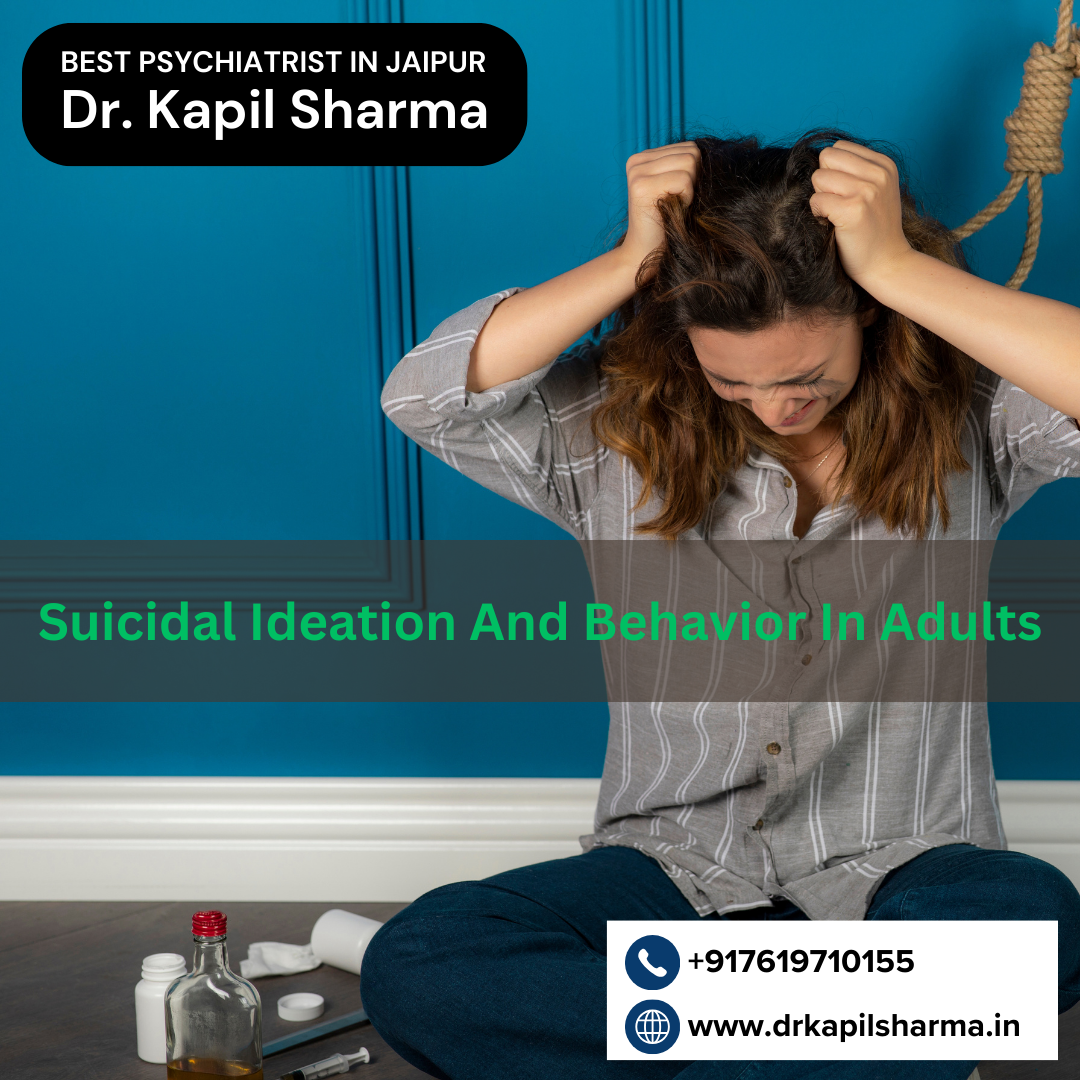
Suicidal Ideation And Behavior In Adults
Suicidal ideation and behavior are complex and serious mental health issues that can affect individuals across various demographics. It is essential to recognize the signs, understand the contributing factors, and promote awareness to prevent and address this critical public health concern. In Jaipur, individuals grappling with suicidal thoughts can seek assistance from mental health professionals, including the best psychiatrist doctor in Jaipur.
Definition:
Suicidal ideation refers to thoughts about ending one’s own life, while suicidal behavior encompasses actions that range from self-harm to completed suicide. These issues are often associated with mental health disorders, but various factors can contribute to their development.
Prevalence:
Suicidal ideation and behavior are prevalent worldwide, with varying rates among different populations. According to the World Health Organization (WHO), nearly 800,000 people die by suicide each year, and for every completed suicide, many more individuals attempt it. In the vibrant city of Jaipur, recognizing the prevalence of these issues emphasizes the need for accessible mental health services, including the expertise of the best psychiatrist in Jaipur.
Risk Factors:
- Mental Health Disorders: Conditions such as depression, bipolar disorder, schizophrenia, and substance abuse significantly increase the risk of suicidal ideation and behavior.
- Previous Attempts: Individuals who have attempted suicide in the past are at a higher risk of future attempts.
- Family History: A family history of suicide or mental health disorders may contribute to an individual’s vulnerability.
- Trauma and Abuse: Experiencing physical, emotional, or sexual abuse, as well as other traumatic events, can increase the likelihood of suicidal thoughts.
- Isolation and Lack of Support: Social isolation, loneliness, and a lack of a support system can contribute to feelings of hopelessness.
- Access to Means: Easy access to lethal means, such as firearms or medications, can escalate the risk of completed suicide.
Warning Signs:
- Verbal Cues: Expressing feelings of worthlessness, hopelessness, or a desire to die.
- Behavioral Changes: Withdrawing from social activities, giving away possessions, or engaging in risky behaviors.
- Mood Swings: Drastic changes in mood, such as sudden euphoria after a period of depression.
- Sleep Disturbances: Insomnia or increased need for sleep.
- Sudden Calmness: A sudden sense of calmness after a period of intense emotional turmoil may indicate a decision to attempt suicide.
Prevention and Intervention:
- Mental Health Treatment: Timely diagnosis and appropriate treatment of mental health disorders can significantly reduce the risk of suicide.
- Crisis Hotlines and Support Services: Encouraging individuals in crisis to seek help from available resources, such as suicide hotlines, can provide immediate support.
- Education and Awareness: Public education campaigns can reduce stigma, increase awareness, and encourage open conversations about mental health.
- Support Networks: Building strong social connections and support networks can act as protective factors against suicidal ideation.
- Means Restriction: Limiting access to lethal means, such as firearms or medications, can prevent impulsive suicides.
Conclusion:
In Jaipur, individuals dealing with suicidal ideation and behavior can find assistance from mental health professionals, including the Top Psychiatrist doctor in Jaipur. By understanding the risk factors, recognizing warning signs, and promoting prevention strategies, society can work together to reduce the prevalence of suicide and provide support for those in need. It is crucial to foster a compassionate and understanding environment that prioritizes mental health and well-being in the Pink City.Top of Form

